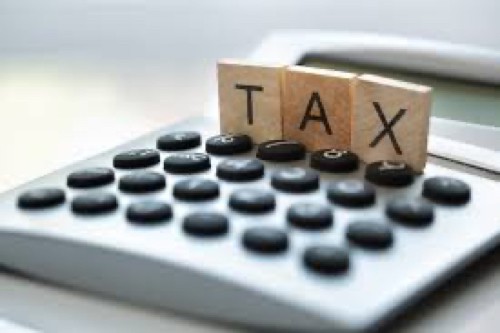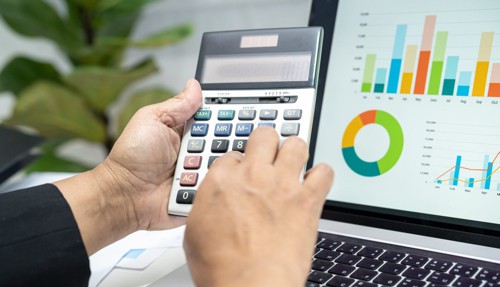What is the personal Income Tax rate Malaysia 2024 and also for company tax rates 2024 malaysia

What Is The Income Tax rate For Personal and Company in Malaysia? Every tax imposed by the Inland Revenue Board (IRB) is an income that is derived from business activities that are carried out by individuals and companies. The tax rates imposed on individuals and company tax rate malaysia are different.
Taxable individuals are individuals who receive income as a result of their employment or business transactions. It is known as personal income tax. The tax imposed on individuals depends on their salary level. Hence, the malaysia personal income tax rate is up to 30%.
Meanwhile, corporate tax rate malaysia is a tax imposed on corporate bodies or companies registered in Malaysia. It includes sole proprietorships, businesses, partnerships, and bodies corporate that run businesses and earn income in Malaysia and outside Malaysia.
The tax levied on the company is subject to the company’s profit in the year of assessment. Pursuant to the Tax Act 1967, the corporate tax rate malaysia is commonly 25% of profits and gains earned for the entire assessment year.
Income Tax Rate Malaysia 2024 For Personal & Company
- READ MORE >> income tax relief 2024 malaysia
- READ MORE >> salary tax in Malaysia
- READ MORE >> best broker forex in malaysia
(i) Personal Income Tax Malaysia Rates 2024
| Malaysian Tax Bracket – INCOME (RM) | INDIVIDUAL TAX RATE (%) |
|---|---|
| 0 – 5000 | 0 |
| 5,001 – 20,000 | 1 |
| 20,001 – 35,000 | 3 |
| 35,001 – 50,000 | 6 |
| 50,001 – 70,000 | 11 |
| 70,001 – 100,000 | 19 |
| 100,001 – 250,000 | 25 |
| 250,001 – 400,000 | 25 |
| 400,001 – 600,000 | 26 |
| 600,001 – 1,000,000 | 28 |
| 1,000,001 –2,000,000 | 28 |
| Over 2,000,000 | 30 |
(ii) Company Malaysia Tax Rate
| DETAILS | NET CHARGEABLE INCOME | TAX RATE |
|---|---|---|
| paid up capital below RM2.5 million | First RM150,000 RM150,001 – RM600,000 RM600,000 & above | 15% 17% 24% |
| Paid up capital above RM2.5 million / Non-resident companies | —— | 24% |

SOURCE: IRB
Does Freelancer Need To Pay Tax In Malaysia
The positive growth of technology has accelerated the number of freelancers in Malaysia.
Freelancing is also one of the forms of employment that generates and earns income for an individual.
Hence, any income that is generated due to employment and business activities will be taxable as long as it is over the minimum value of the monthly or yearly taxable income.
Therefore, freelancers are required to pay income tax 2024 malaysia according to malaysian tax bracket.
Income Tax For Foreigners 2024
Foreign workers, which means non-resident individuals regardless of their nationality, who work, receive, and earn income in Malaysia will be entitled to tax.
They are subject to Malaysian domestic law.
Therefore, they are subject to malaysia income tax for foreigners 2024, around 30% of the taxable income charged to them for the entire calendar year.
Do Malaysian Working In Singapore Need To Pay Tax In Singapore
According to the Inland Revenue Authority of Singapore (IRAS), any income earned and received in Singapore will be taxable.
By this means, either residents or non-residents of Singapore who work and generate income in Singapore ought to pay the income tax imposed on them.
However, the tax was also imposed on the overseas body corporate that earned income from Singapore.
Thus, individuals that are engaged in businesses or employment in Singapore are entitled to income tax based on the tax rate stated by IRAS.
What Is The Difference Between Singapore & Malaysia Income Tax Rate
Both Singapore and Malaysia have a progressive tax system.
This means the tax income rate will increase accordingly depending on the chargeable income of the taxpayers.

Even though they both implement the same system, malaysian tax bracket is quite complex.
Residents and non-residents of Malaysia are still entitled to a higher malaysian tax rate, which is up to 30% for personal tax and 24% for malaysia company tax rate.
Meanwhile, residents and non-residents of Singapore are entitled to a lower malaysia tax rate, i.e., 17% for company tax and 22% for corporate tax.
Do I Need To File Tax If I Am Not Working Malaysia
Any salary that is received and earned abroad is not subject to tax.
However, they will be subject to the tax imposed by the country they work for.
Hence, an individual who is not working in Malaysia and does not earn any income from Malaysia is exempt from declaring and filing the tax.
Is Dividend Taxable In Malaysia
Dividend is the passive income received by the individual out of profit gained within the assessment year.
Since Malaysia has a single-tier tax system, dividends are exempt from being subject to tax.
Thus, a dividend is a category of income that is non-taxable.
What Kind Of Income Is Not Taxable in Malaysia
Fortunately, not all income earned by an individual or body corporate will be subject to tax.
There are some perks that are exempt from being subjected to tax. By doing so, they will enjoy the benefits, which are free from tax charge.
Indirectly, this can reduce the overall taxable income that will be paid by the taxpayers.
There are various kinds of income that are entitled to full tax exemption, which can entirely ease the burden of taxpayers in paying the tax obligation every year.
Following are the kinds of income that are not taxable in Malaysia:
- Medical and dental benefits
- Gratuity
- Death gratuity
- Fees or honorarium in higher educational institutions
- Dividend
- Foreign-sourced income of residents and non-residents
- Grant or subsidy
- Income from director’s fees
- Interest
- Pensions
- Prize money
- Royalties
- Scholarships
What Is The Tax Rate For Non Resident In Malaysia
Pursuant to the Income Tax Act 1967, foreigners who live in Malaysia for less than 182 days in a year are categorized as non-residents will be liable to income tax as their income is derived from any business or non-business transaction operated in Malaysia.
Non-resident taxpayers need to file Form M to declare and pay their income tax.
The personal Tax Rate Malaysia 2024 for chargeable income for non-residents is 30%. There is no personal relief deductible from the taxable income of non-resident taxpayers.